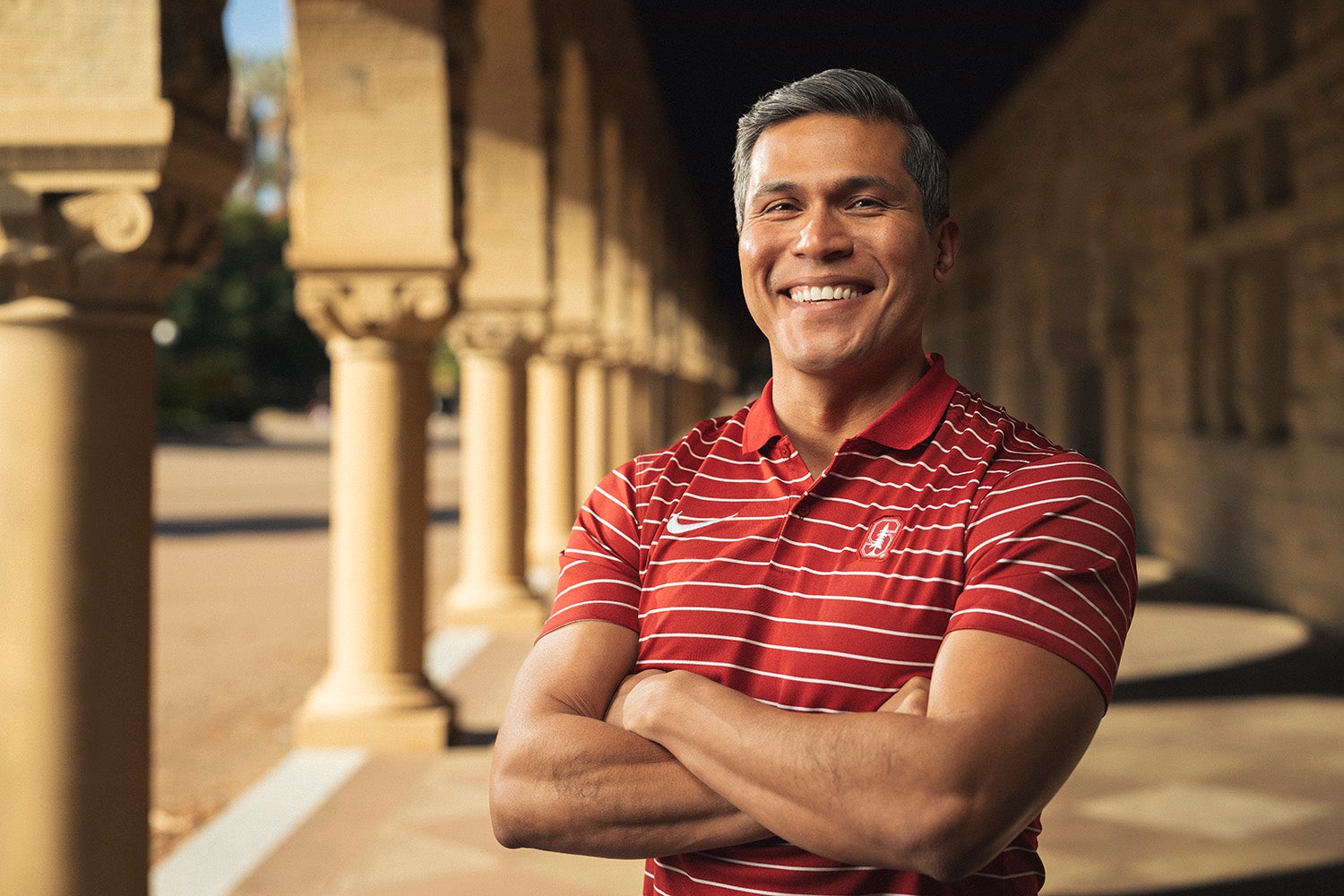
Samuel Santos is associate vice provost for inclusion, community, and integrative learning. (Image credit: Andrew Brodhead)
Dear students,
As I pass my 6-month mark on the Farm, I’m writing with an update on social life, building on this message shared with you in November. Since then, I’ve met with more than 25 students representing more than a dozen clubs and organizations, from the Stanford University Surf Club to dance groups to Greek organizations. Most are frustrated about some aspects of campus social life while being excited about others. Though they are not all frustrated or excited about the same things, a few themes did emerge.
Here’s what I’m hearing from students
One issue: Many students want more opportunities for social events on weekends. Some just want places to hang out with their friends on Friday and Saturday nights – a low-key, coffee-shop vibe. Other students would like more large parties and off-campus excursions.
Students are also concerned about our processes for finding spaces and planning parties and events: They feel university processes are overly bureaucratic and have too many steps. Several groups asked for low-cost or no-cost spaces where they could host events, as well as more funding to make events happen.
What are students excited about? It really varies. Some students are happy with campus social life as it is today; others enjoy their existing connections with clubs and organizations but see areas for improvement.
Finally, I heard a wide range of views on alcohol and related university policies. Some frosh, for example, said they are uncomfortable with the pressure they feel to drink and the ways heavy drinking disrupts dorm community life; some older students thought the university was coming down too hard on drinking.
What we’re doing now
We have identified and have taken action on five key ways to enhance campus social life:
- More event space and extended hours: In response to the request for low-cost space for events, we have made the Tresidder Oak Lounge and the adjacent second floor lobby available to student groups on Friday nights, Saturdays, and Saturday nights. It’s a big event space, and this will help us activate evening and weekend social life. This is a pilot project funded by the Provost’s Office – the space is free for groups who register to use it through the Student Affairs Meeting Services office. In addition, we have extended the hours for Old Union to 2 a.m. to give students another place to gather informally.
- Party planning: We are simplifying and clarifying the party planning process, guided by feedback from two groups of students – one group of undergrads and one group of graduate students – who frequently plan large parties. For example, we plan to offer a clearer explanation of the reasons for each step, expand training, and support learning through interactive collaborations (such as a recent mock party co-hosted by student leaders and our Fraternity and Sorority Life office). We’ll simplify the process by making it easier to plan recurring events and by creating a one-page quick guide. We expect to have these changes in place by spring 2023. Finally, to make sure we’re addressing the needs of students, I’ll be hosting bi-weekly meetings with student leaders including the ASSU, GSC, and IFC to find ways to continue to improve the process.
- Stanford Group Accountability Process: Students are concerned about how long this process takes. In response, we’re adding timeframes to the stages of the process defining the length of time for the university’s portions of the process. (Students will still have discretion on timing in many parts of the process so that they can review materials and weigh their options). We are also staffing up the office that handles these cases to review them more quickly. We plan to have these new changes in place by spring 2023.
- Event funding: We will give 50 grants of $1,000 each to clubs and organizations to host weekend events that are open to all students. Registered student organizations can now access these one-time grants via Cardinal Engage.
- Additional event help: The President’s Office is funding two new positions in the Office of Student Engagement to work directly with students who are planning events. Need help with a concert venue? Looking for guest speaker funding? Questions about party planning? These staff members will be here to help. We’ll fill these positions as soon as we can.
The work ahead
These first five steps are the most responsive actions we could take immediately based on what I’m hearing from students. There is no one way or one answer to this large question of how we can best support a vibrant social scene, and this will continue to be an iterative process: we’ll try new approaches, see how they work, collect feedback, and improve. So this is a good beginning, but we are by no means done responding to your direct feedback. We’ll always be looking for ways to refine the process and be more responsive for students. We’re also carefully studying the Social Life Accelerator Task Force findings and developing long-term plans.
Let’s keep talking
The best way to activate campus life is for students to get involved. This could be through leadership opportunities connected with the ASSU, GSC, clubs, organizations, neighborhood councils, student residential leadership (RAs and ETAs), fraternity and sorority life, and more. We’re here to help turn your ideas into iconic events, fun events, exciting events. This is a great way for you to create opportunities for everyone to enjoy.
If you’re interested in continuing the conversation in person, please reach out!
Sincerely,
Samuel Santos Jr.
Associate Vice Provost
Inclusion, Community and Integrative Learning